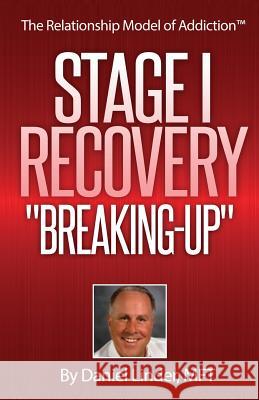Stage I Recovery: "Breaking-Up" » książka
Stage I Recovery: "Breaking-Up"
ISBN-13: 9781497561076 / Angielski / Miękka / 2014 / 34 str.
The Relationship Model of Addiction - A New Paradigm for Understanding Addiction and Recovery Stage I of Recovery - "Breaking-up" Recovery is a transitional journey -- getting out of unhealthy, addictive relationships and into healthy, emotionally nourishing relationships. An addiction is a relationship with a means of relief. It's a 'bad' or unhealthy relationship. The recovery journey, as is the case with any 'bad' relationship, once you recognize it is a 'bad' relationship, you will want to get out - "break-up." However, due to the strong emotional dependency you've developed, there are a number of hurdles you must get over in order to extricate yourself from this relationship. There are seven "stopping or destination points" in Stage I of your recovery journey. For programming purposes, each "point" entails either education or experiential processes, which can include writing, sharing or interactive exercises. 1. Seeing the relationship for what it is - a relationship with a means of relief, driven by the need for relief, that is impeding your functioning and destroying your life and relationships. 2. Recognizing the Progression - of increasing involvement, loss of control, problems, isolation, impaired functioning and decision-making. 3. Working Through the Stigma of Powerlessness - Confronting the shame associated with admitting powerlessness, that keeps you from self- acceptance. 4. Discovery - When did this relationship begin? Going back to either the moment you first experienced the extraordinary effect, or the period of time when the relationship was forming, and connect to what was going on emotionally and in your relationships at the time. 5. Emotional Withdrawal - Identify your experience with 2 types of emotional withdrawal. When "coming down" sobriety becomes a "less than" experience, and in the process of "breaking-up," there is the void of alone that must be consciously crossed. 6. Dismantling Denial - Making the unconscious conscious, exposing the perceptual distortion that occurs in the service of preserving and protecting the relationship, identifying manifestations of denial, delusion and deception. 7. Saying "Good-bye" - Writing a "Good-bye" letter, that you've made a decision to "break-up," and what that decision is based on; and a "Declaration" letter that describes the kind of relationships you're longing for, and your commitment to go after what you want. 8. "No (sexually) intimate relationships during the first year of recovery." When the primary goal is to achieve a sustained period of stabilization, getting sexually involved often leads to intense feelings you will likely be ill-equipped to deal with, increases risk of relapse and using the person or relationship as a substitute for the means of relief.
Zawartość książki może nie spełniać oczekiwań – reklamacje nie obejmują treści, która mogła nie być redakcyjnie ani merytorycznie opracowana.











